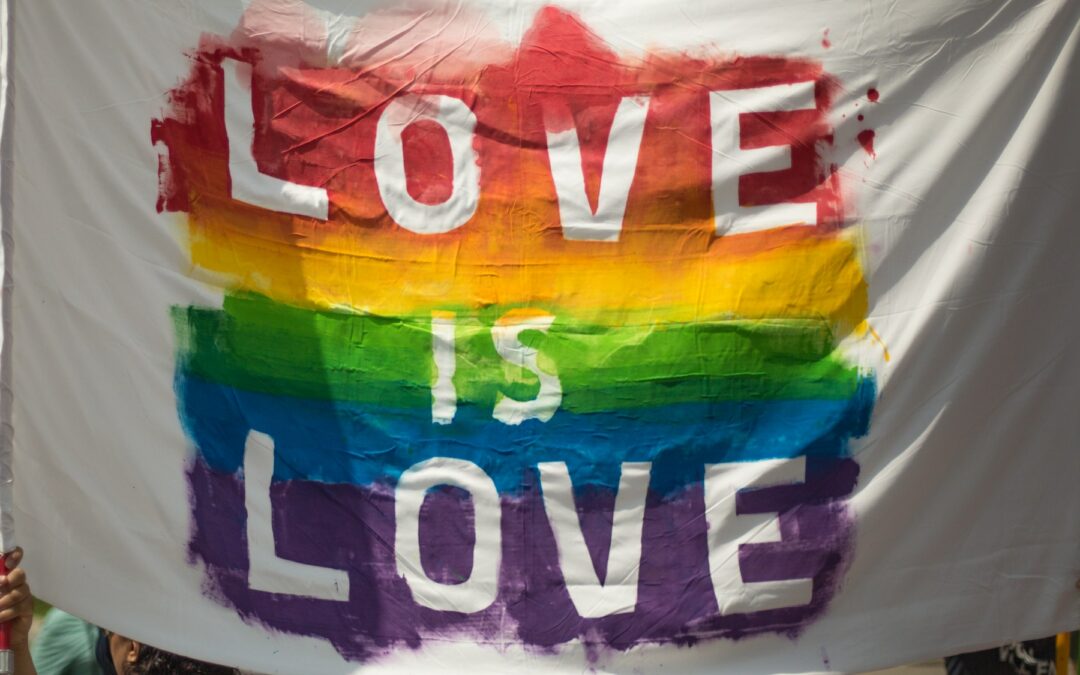With June being Pride Month, many individuals are trying to find ways to show their allyship to the LGBTQIA+ community. (This stands for lesbian, gay, bisexual, transgender, queer, intersex, asexual/aromantic, and more). During a time where many states have been attempting to enact anti-LGBTQ+ legislation, many people feel that it is especially important to advocate for these groups. With this article, we’re going to show ways you can be an ally during Pride Month.
The Meaning of Allyship
Being an ally can be intimidating to many people. They want to show their support to the community, but they also don’t want to overstep or speak over certain groups. It’s an understandable concern to have, but it’s better to do research on how to be an ally than not say anything at all.
According to a study done by the Human Rights Campaign Foundation in 2018, members of the LGBTQ+ community viewed allyship as having three components: being accepting, taking action, and having humility.
Acceptance
Being accepting is the most simple one to explain. The actions of an accepting ally need to show that they accept and will continue to validate people’s gender and sexuality. It also includes advocating for equal rights and equal treatment of LGBTQ+ individuals. While being accepting is obviously important to the community, it should be supplemented by more.
Action
Taking action refers to speaking up for the LGBTQ+ community as well as being willing to learn more about the community and issues against them. This is in terms of small-scale interpersonal issues (someone you know saying something offensive) and systemic issues (transgender individuals struggling to obtain a job).
It can be extremely intimidating to speak out against discrimination. Many will be afraid to lose friends and family members or face conflict in the workplace. However, it is always worth it to speak up if you are comfortable doing so. It will mean a lot to the individuals affected by discrimination, and could even save a life.
Humility
Having humility is the component of allyship that focuses on not making LGBTQ+ discussions about yourself. A person with humility would listen more than speaking in these discussions, and not making themselves the focus of these discussions.
Ideally, a person should become an ally because they care about LGBTQ+ discrimination, and not just to look like a “good person.” To keep yourself in check, you should ask yourself if you are acting because you want to end the discrimination, or because you want to look like a good person for speaking up?
Bringing Allyship Into Everyday Life
Many people feel that allyship and advocacy involves a lot of work. But there are many small ways you can show advocacy for the community just in your day-to-day life. Here are some ways that you can do so:
- Ensuring that you do not accidentally “out” someone without their permission. If someone is comfortable enough to mention their gender or sexuality to you, you should not break this trust by telling other people without their approval.
- Normalizing sharing pronouns when meeting new people. This should only be done if you are comfortable and safe to do so. Normalizing pronouns, even if you are not transgender or nonbinary, can erase gender assumptions that are so prevalent in our society.
- Speaking up when you hear someone make a discriminatory comment. As previously mentioned, this can be scary to do, but it’s absolutely worth it. You may end up showing someone who is LGBTQ+ that you are an ally and willing to speak up for the community. This also can be a great way to open up discussions and break many of the harmful stereotypes that are still around today.
- Bringing inclusive language into regular conversation. Inclusive language includes trying to erase gendered phrases (“you guys,” for example). Here is a guide from AIHR about inclusive language in the workplace, but you can include many of these phrases into conversation outside of work.
- Showing allyship with an LGBTQ+ symbol. There are various ways you can show your allyship publicly. You can have a sticker on your window or car, wear an ally button, display a flag at your home, and much more.
Final Thoughts
Openly being an ally can be meaningful to many different people. There may be someone in your life who is part of the LGBTQ+ community without you knowing, and seeing your meaningful allyship may help them to know there is someone supportive in their circle.
You can do small day-to-day actions to show your allyship, and you can also donate to pro-LGBTQ+ foundations. At the end of the day, as long as you are trying to learn and listen to the community, you are already doing well in your road to allyship.








